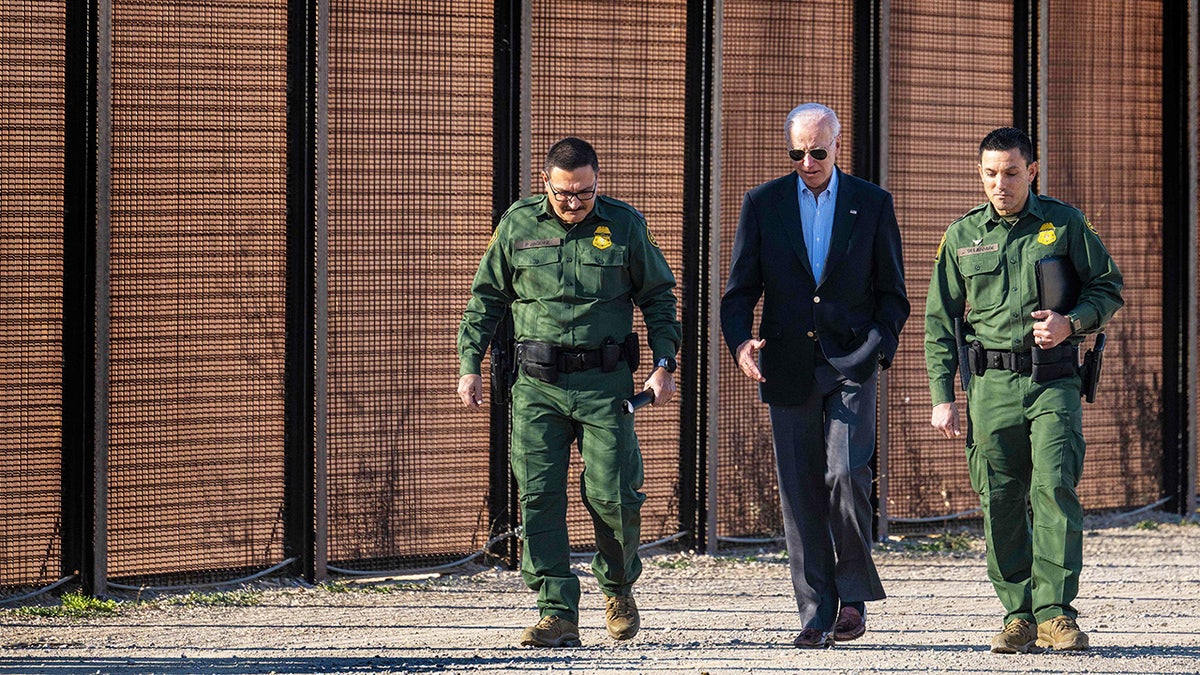How the most powerful nation lost control of its borders: former ICE director
A three-year immigration crisis has created deep implications at the border and across the U.S. It's quickly become a top issue in the 2024 presidential election.
The U.S. is in the grip of an ongoing crisis at the southern border, now into its third year. While there have been a number of surges in migration to the U.S.-Mexico border in recent history, none have been so large or so sustained.
Republicans say the crisis has been a direct consequence of the policies of the Biden administration. But Democrats and the administration say the U.S. has a broken system in need of reform and funding that Congress has so far failed to address.
How did the immigration crisis start?
The surge escalated in 2021, when, after months of increasing numbers in 2020 from the lows seen during the first months of the COVID-19 pandemic, encounters skyrocketed from 78,000 in January 2021 to 213,000 by July, according to Customs and Border Protection data.
Encounters remained high through 2022, reaching a high of 241,000 that May. Encounters in fiscal year 2022 hit 2.3 million, a new record. That was broken the next year with 2.4 million.
BIDEN, DURING VISIT TO OVERWHELMED BORDER, URGES REPUBLICANS TO BACK SENATE BILL

President Biden speaks with Customs and Border Protection officers as he visits the US-Mexico border in El Paso, Texas, on January 8, 2023. (JIM WATSON/AFP)
More recently, the monthly record for encounters was shattered in December, when there were over 300,000 encounters for the first time, according to CBP. Meanwhile, the immigration court backlog has exploded to more than 3 million cases, while seizures of fentanyl at the southern border have also broken records.
What's the Biden administration's response?
The Biden administration has said the spike coincides with a hemisphere-wide migration surge sparked by insecurity, poverty and other root causes.
"It is because the world is living through one of the greatest levels of human displacement that it ever has, and certainly since World War II. And the challenge that we are experiencing at our border, which is a very serious and consequential challenge, is one that the entire hemisphere is experiencing," Homeland Security Secretary Alejandro Mayorkas told The New York Times in February.
President Biden and former President Trump have both visited the southern border in 2024, making their respective cases to the voters.
Biden said he needs Congress to "put politics aside" and pass additional spending and reforms found in a bipartisan Senate bill. The legislation includes additional staffing at the border and in asylum offices, an increased $1.4 billion in funding to cities and organizations receiving migrants, aims to tackle fentanyl smuggling and would limit asylum claims. It would also increase detention beds to 50,000 and provide additional immigration judges.
However, the bill failed to gain enough support in the Senate after conservative lawmakers warned that a limiting mechanism that only comes into place after an average of 5,000 encounters a day would normalize the already high levels of illegal immigration.
"It's real simple, it's time to act, it is long past time to act," Biden said. "It's time for us to move on this, we can't wait any longer."
Meanwhile, the administration has been pursuing a strategy of expanding lawful migration pathways while increasing what it says are consequences for illegal entry, including an asylum ban and increased use of expedited removal. But it has stressed it needs more funding to do so.
The administration rejects claims it has opened the border, pointing to more than half a million removals or returns between May 2023 and January 2024. It also expanded the CBP One app to allow more migrants to be processed in ports of entry, launched funding drives to tackle root causes in Central American countries and set up processing centers in the region.
What do Republicans think?
Republicans and former Trump officials blame the Biden administration, accusing it of rolling back successful Trump-era policies like the Remain in Mexico program, which kept migrants in Mexico for their asylum hearings, along with border wall construction and other measures to stop catch-and-release.
Tom Homan, who served as acting Immigration and Customs Enforcement director under Trump, told Fox News Digital he believes those Trump policies secured the border.
"We handed the Biden administration the most secure border in my lifetime. That's just based on fact. That's based on data. Anybody can look at the data. Then President Biden came in," he said.
Homan and other critics also cited a 100-day ICE deportation moratorium as evidence the administration is pursuing an open border policy.
"President Biden ran on open borders, and you gotta give him credit. Once he became president, he kept his promise and opened the border," Homan said.
7.2M ENTERED US UNDER BIDEN ADMIN, AN AMOUNT GREATER THAN POPULATION OF 36 STATES

Migrants who crossed the Rio Grande and entered the U.S. from Mexico line up for processing by U.S. Customs and Border Protection, Saturday, Sept. 23, 2023, in Eagle Pass, Texas. (AP Photo/Eric Gay, File)
Electoral implications
The crisis has had deep political impacts. Not only has it become a top 2024 issue, with polls showing a majority of voters seeing large amounts of illegal immigration as a "critical" threat, but the immediate impact has also spread beyond the border.
As more and more migrants have moved into the interior, including through a busing program from Texas Gov. Greg Abbott, cities like New York City, Chicago and Denver have been overwhelmed by the numbers and the strain put on their services. Mayors have appealed for support, last year asking for more than $5 billion in aid, among other measures.
Meanwhile, Republicans in the House impeached Mayorkas for his handling of the crisis, sending articles of impeachment to the Senate.
If elected, Trump has promised to return to many of his past policies and has pledged to ramp up deportations.
CLICK HERE TO GET THE FOX NEWS APP
"The fix is simple. Dust off the Trump plan and reinstitute the Remain in Mexico program, reinstitute the safe third country agreements, continue building the wall and end catch and release," Homan said. "Those things right now would solve 90% of the problem on the border."















































